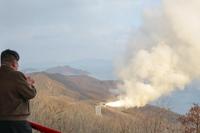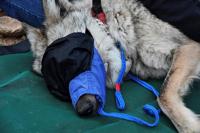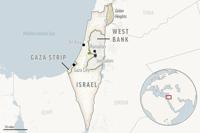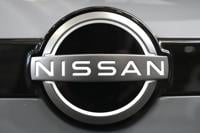SEOUL, South Korea (AP) — North Korea successfully tested a solid-fuel engine for its new-type intermediate-range hypersonic missile, state media reported Wednesday, claiming a progress in efforts to develop a more powerful, agile missile designed to strike faraway U.S. targets in the region.
is among an array of high-tech weapons systems that North Korean leader Kim Jong Un publicly vowed to introduce in 2021 to cope with what he called deepening U.S. hostility. Outside experts say Kim wants a modernized weapons arsenal to wrest U.S. concessions like sanctions relief when diplomacy resumes.
On Tuesday, Kim guided the ground jet test of the multi-stage solid-fuel engine for the hypersonic missile at the North’s northwestern rocket launch facility, the official Korean Central News Agency reported.
It cited Kim as saying the strategic value of the new missile with an intermediate-range is as important as intercontinental ballistic missiles targeting the U.S. mainland and that “enemies know better about it.” It said that a timetable for completing the development of the new weapons system was “set through the great success in the important test.”
Intermediate-range missiles possessed or pursued by North Korea are the weapons systems primarily aimed at attacking the U.S. Pacific territory of Guam, home to U.S. military bases. Those missile can also reach Alaska, and with a range adjustment they can be used to strike closer targets like U.S. military installations in Japan’s Okinawa island, experts say.
In recent years, North Korea has been pushing to develop more weapons with built-in solid propellants, which make launches harder to detect than liquid-propellant missiles that must be fueled before liftoffs and cannot last long. The North's pursuit of hypersonic weapons is also meant to defeat U.S. and South Korean missile defense systems, but it's unclear the North's hypersonic vehicles proved their desired speed and maneuverability during tests in recent years, analysts say.
In January, North Korea said it flight-tested a new solid-fuel intermediate-range ballistic missile tipped with a hypersonic, maneuverable warhead, in a likely reference to the missile mentioned in Wednesday's KCNA dispatch. In November, North Korea said it had tested engine tests for an intermedia-range missile but didn't say whether it's designed to carry a hypersonic warhead.
While the North's missile test in January was likely related to the development of its first-stage rocket, this week's engine test appeared focused on the development of its second-stage rocket in part of the North's efforts to increase the weapon's flying speed, said Chang Young-keun, a missile expert at South Korea’s Research Institute for ��ɫtv Strategy.
Chang said the latest engine test suggests North Korea could soon test-launch the new hypersonic missile.
After short-range tests with hypersonic weapons, North Korea would want to increase their ranges with maneuverable hypersonic warheads, Lee Choon Geun, an honorary research fellow at South Korea’s Science and Technology Policy Institute, said. He said the capacities of the new missile can be assessed when it's test-flighted.
On Monday, South Korea, the U.S. and Japan said they detected by North Korea in what was the country's first missile firings in about a month. The North said Tuesday it performed a live-fire drill of what it called nuclear-capable designed to target South Korea’s capital, Seoul. South Korea's military later said it views the North Korean weapons system tested as a ballistic missile.
North Korea has been engaging in a provocative run of missile tests since 2022. The U.S. and South Korea militaries have responded by expanding their bilateral exercises and trilateral drills involving Japan. Observers say North Korea will likely intensify its run of missile tests ahead of the U.S. presidential election in November.








































